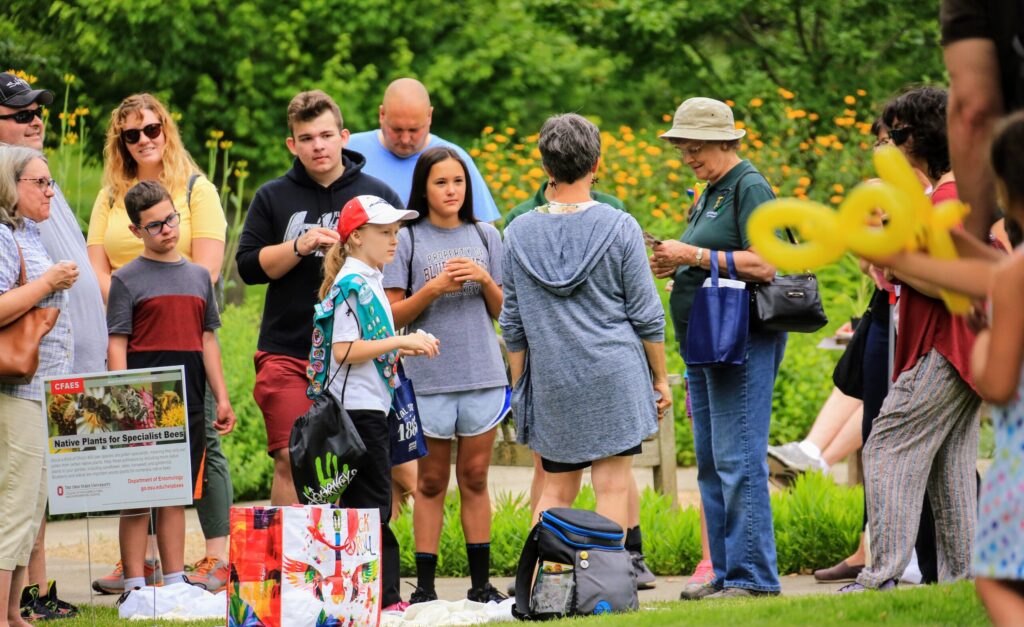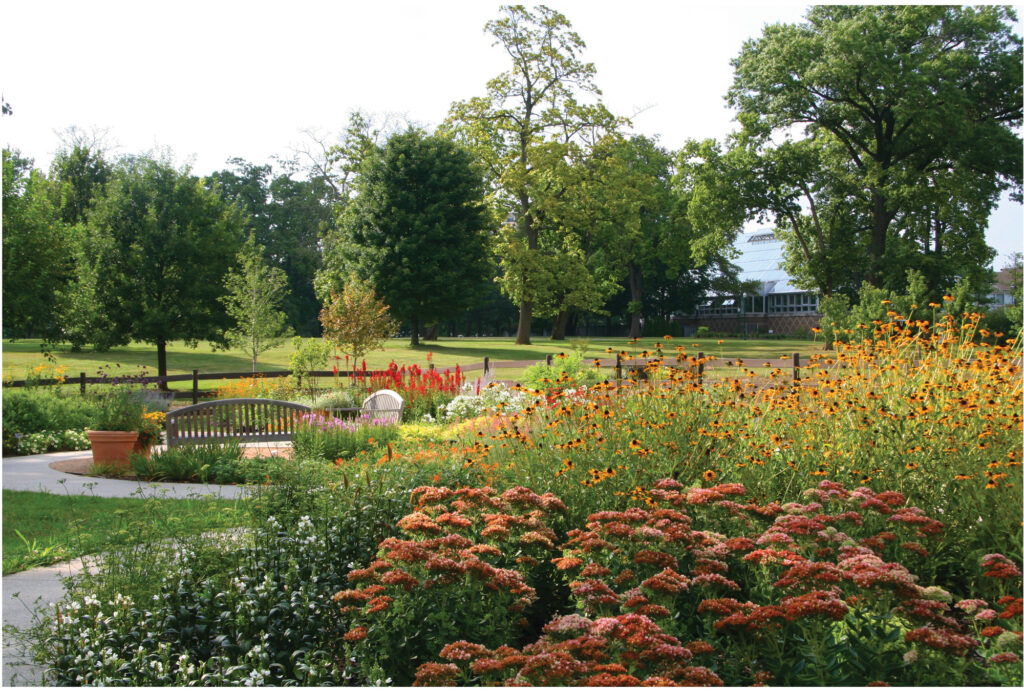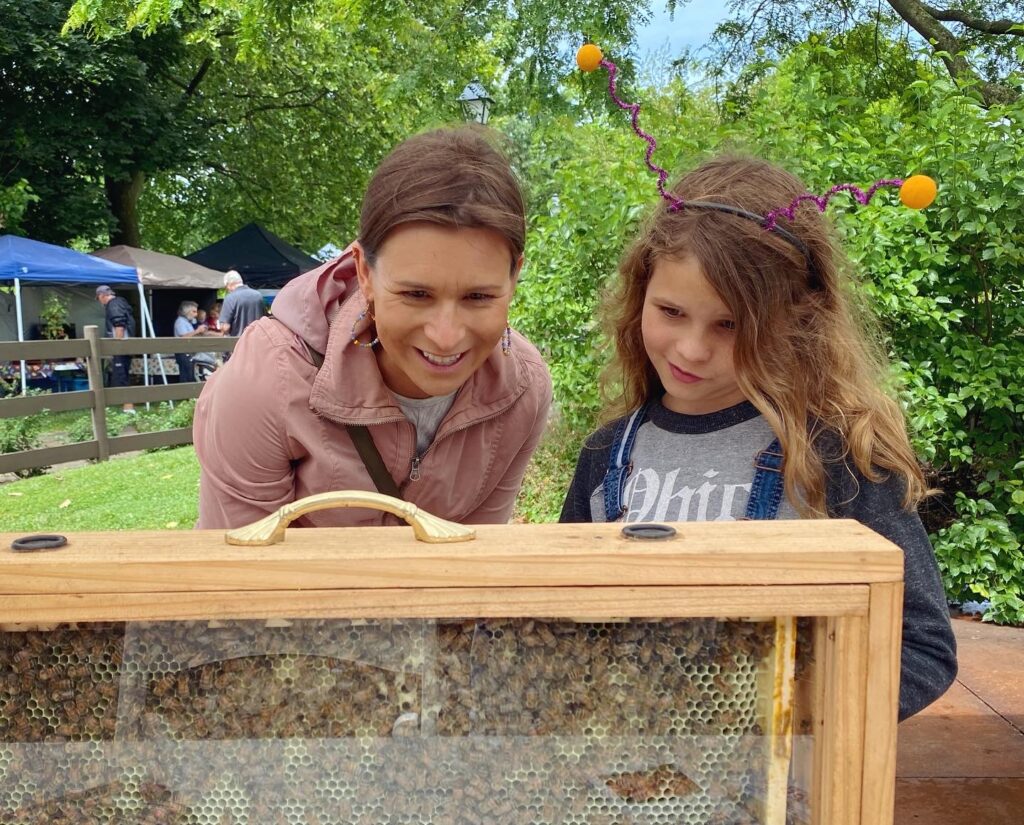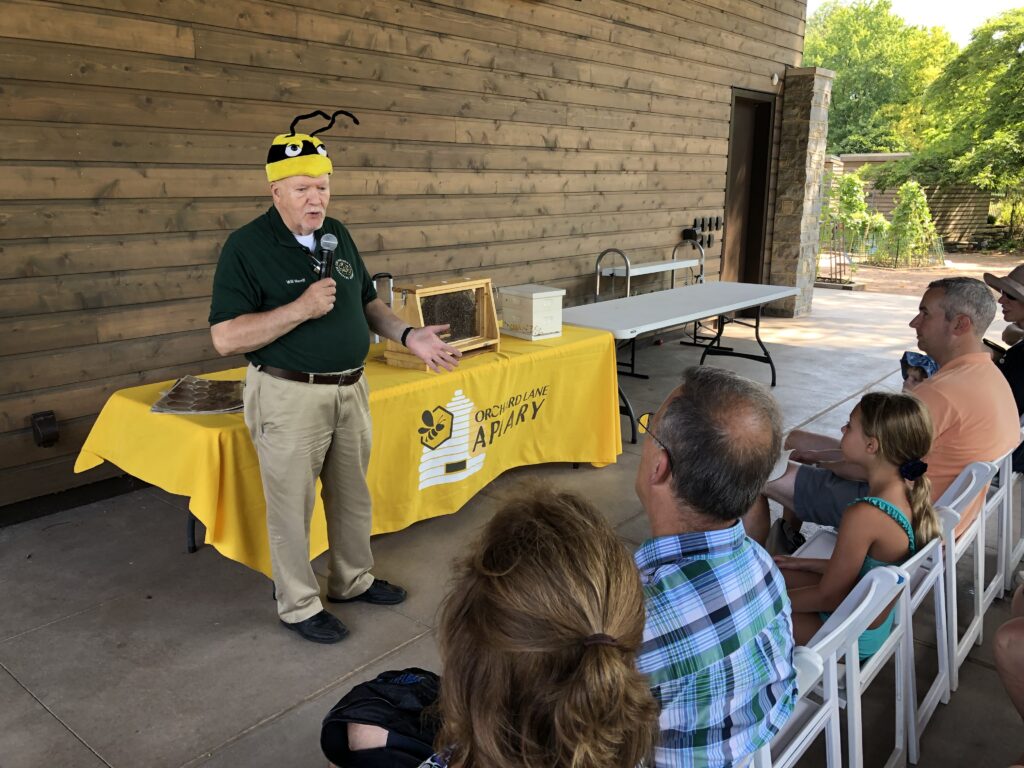Published June 20, 2023
- Home
- Conservatory Cultivators
- What’s All the Buzz About? Pollinators at the Conservatory!
Published June 20, 2023
Naturalist and author Henry David Thoreau once said “the keeping of bees is like the direction of sunbeams.” Here at the Conservatory, we have plenty of both! Thanks to our generous supporters, the Conservatory is home to on-site beehives (known as apiaries) that help keep our gardens fragrant and blooming all spring and summer long. Read on for five quick tips about how you can help support critical pollinators at home, plus a fun opportunity to celebrate our hard-working animal and insect friends at Pollinator Palooza on Saturday, June 24!
 Guests at Pollinator Palooza
Guests at Pollinator Palooza
Did you know that approximately 75% of all plant species depend on animal pollinators? Essential pollinators include bees, butterflies and moths, flies, bats, birds and small mammals. Unfortunately, critical habitat loss is threatening populations of pollinators in Ohio and throughout the world.
But you can help! Here are five quick tips to help make our community a little more pollinator friendly this summer:
 The Pollinator Garden located in the Scotts Miracle-Gro Company Community Garden Campus
The Pollinator Garden located in the Scotts Miracle-Gro Company Community Garden Campus
3. Provide Nesting Sites. Brush piles, dead standing trees and clumping grasses all provide important nesting and overwintering habitat for bees and butterflies. Some bees are ground nesters, and enjoy south-facing bare soil for their burrows. Others are cavity nesters, who enjoy nesting in stumps and leaf litter, or even a homemade bee hotel!
4. Add a Water Source. Thirsty pollinators will enjoy having access to a shallow bowl or birdbath during the warmest months. A few sticks placed in the bowl provide a place for bees and other insects to land and perch without the risk of falling in.
5. Snag a Cute Reusable Bee Tote at your local Giant Eagle. A fun and easy way to support pollinator work in your community is by purchasing one of Giant Eagle’s exclusive It Takes a Hive to Thrive™ tote bags! Not only will you reduce plastic and paper waste from single-use grocery bags, for each bag sold in the Columbus area, they’ll donate $1 back to the Conservatory to support our hives and on-site pollinator education.
 Guests at Pollinator Palooza
Guests at Pollinator Palooza
These handy tips will give you a great start to supporting pollinators in Ohio this year, but the fun doesn’t stop there! Join us for a celebration of pollinators at our free annual Pollinator Palooza on Saturday, June 24, 2023. Natives in Harmony will be on-site with a variety of native Ohio plants for sale. Denise Ellsworth, Program Director of Honey Bee and Native Pollinator Education from OSU Extension, will lead a pollinator tour in the gardens. Plus, there will be activities, crafts, games, live music, live critters from The Bug Man and For All Species, food trucks and much more!
As Nicole Tabit, the Conservatory’s Community Outreach and Education Program Coordinator, explains, “supporting pollinators of all types is more important than ever and Pollinator Palooza provides the community with opportunities to learn more about attracting pollinators to our yards, protecting endangered species and discovering the work local organizations are doing to assist the pollinators that are essential to our lives.”
 Bee Educator Activity in the Scotts Miracle-Gro Foundation Children’s Garden
Bee Educator Activity in the Scotts Miracle-Gro Foundation Children’s Garden
Thanks again for supporting our garden friends here at the Conservatory and in the community!
Special thanks to Ohio State University Extension Bee Lab and their “Attracting Pollinators to the Garden” fact sheet for the tips provided in this article.
Choose how you would like to give